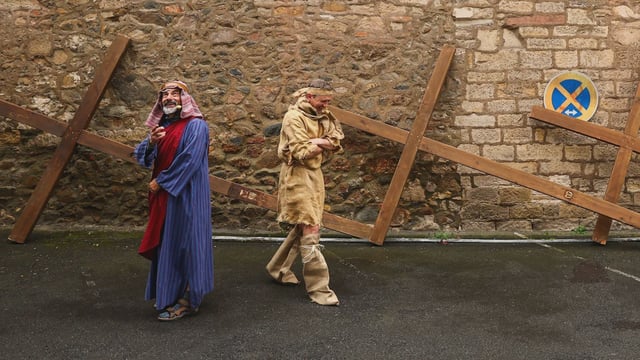Overview
- In Lohr am Main, one of Germany's oldest Good Friday processions featured 600 participants carrying century-old figures depicting the Passion of Christ in silence.
- Berlin's ecumenical procession highlighted themes of antisemitism, racism, the plight of Afghan women, and climate change, ending for the first time at the renovated Sankt Hedwigs-Kathedrale.
- Church leaders, including Beate Hofmann and Reinhard Marx, used sermons to advocate for peace, reconciliation, and moral courage in the face of global conflicts and societal challenges.
- Bavarian authorities enforced the region's dance ban as part of Good Friday's designation as a 'silent day,' sparking ongoing debates about its relevance in a pluralistic society.
- Good Friday remains a uniquely solemn occasion in Germany, resisting broader trends of secularization and commodification that have affected other Christian holidays.



